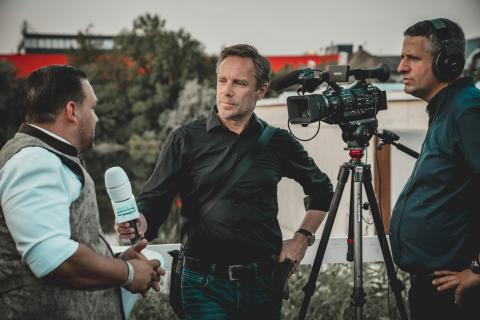The Rising Credentials Required to Pursue a Media Career
Aug 08,2024
A career in media has long been associated with creativity, storytelling, and the ability to capture the pulse of society. However, as the industry has evolved, so too have the expectations for those entering the field. Today, aspiring media professionals find themselves facing increasingly demanding educational and experiential requirements. From advanced degrees to specialized certifications, the mounting credentials needed to pursue a media career reflect the growing complexity and competitiveness of the industry. This article explores the reasons behind these rising standards and what it means for those looking to break into media.
1. The Changing Landscape of Media
The media industry has undergone a dramatic transformation over the past two decades, driven by the rise of digital technology, social media, and content streaming. Traditional roles in journalism, broadcasting, and publishing have expanded to include digital content creation, data analytics, social media management, and multimedia production. This shift has led to an increase in the skills and knowledge required to succeed in media.
Employers now expect candidates to be well-versed in a range of platforms and tools, from video editing software to content management systems. As a result, job seekers are finding that a basic undergraduate degree in communications or journalism is often not enough. Instead, many are pursuing additional credentials to stand out in a crowded job market.
2. Advanced Degrees and Specialized Education
While a bachelor’s degree remains the standard entry-level requirement for many media jobs, there is a growing trend toward advanced education. Master’s degrees in journalism, digital media, or media studies are increasingly sought after, particularly for positions in leadership, specialized reporting, or media research.
These programs often offer in-depth training in areas like investigative journalism, media ethics, data journalism, and digital storytelling. They also provide opportunities to build portfolios, network with industry professionals, and gain hands-on experience through internships and projects. For many, obtaining an advanced degree is a way to gain a competitive edge and demonstrate a commitment to mastering the complexities of modern media.
3. Certifications and Technical Skills
In addition to formal education, certifications in specific tools and techniques have become highly valuable in the media industry. Certifications in areas such as Google Analytics, Adobe Creative Cloud, social media strategy, and search engine optimization (SEO) are increasingly listed as preferred or required qualifications in job postings.
These certifications signal to employers that a candidate possesses the technical skills necessary to navigate the digital media landscape effectively. For example, a certification in digital marketing or SEO can be crucial for roles in online content management or digital advertising, where understanding how to drive and measure web traffic is essential.
4. The Role of Internships and Real-World Experience
Experience remains a critical factor in media careers, and internships are often the gateway to landing a full-time job. However, the bar for what constitutes valuable experience has risen. In the past, a single internship might have sufficed, but now, multiple internships across different facets of media—such as print, digital, broadcast, and social media—are often expected.
Moreover, employers are increasingly looking for candidates who have completed real-world projects, managed personal blogs or YouTube channels, or contributed to online publications. Building a portfolio that showcases a range of experiences and skills has become essential for demonstrating readiness to enter the professional media world.
5. Networking and Industry Connections
In an industry where connections often open doors, networking has always been important, but it has taken on even greater significance as the number of qualified candidates has increased. Attending industry conferences, participating in media-related workshops, and joining professional organizations are now key strategies for building a network.
Many media professionals also leverage social media platforms like LinkedIn and Twitter to connect with industry leaders, share their work, and stay informed about the latest trends and job opportunities. Building a strong online presence can enhance a candidate’s visibility and credibility in the eyes of potential employers.
6. Challenges and Opportunities
The rising credential requirements for media careers present both challenges and opportunities. On one hand, the need for advanced degrees, specialized certifications, and extensive experience can be daunting, particularly for those from underrepresented backgrounds or those facing financial barriers. The cost of higher education and the unpaid nature of many internships can limit access to these opportunities, potentially leading to a lack of diversity in the industry.
On the other hand, the increased emphasis on credentials reflects the growing professionalism and specialization of the media industry. For those who can navigate these requirements, the rewards can be significant. Media professionals with the right mix of education, skills, and experience are well-positioned to take on leadership roles, drive innovation, and shape the future of media.
The mounting credentials required to pursue a media career underscore the evolving nature of the industry. As media continues to expand into new digital frontiers, the demand for specialized skills and knowledge will only grow. Aspiring media professionals must be prepared to invest in their education, gain diverse experiences, and build strong networks to succeed in this competitive field. While the path to a media career may be more challenging than ever, it also offers exciting opportunities for those equipped with the right credentials and a passion for storytelling in the digital age.






